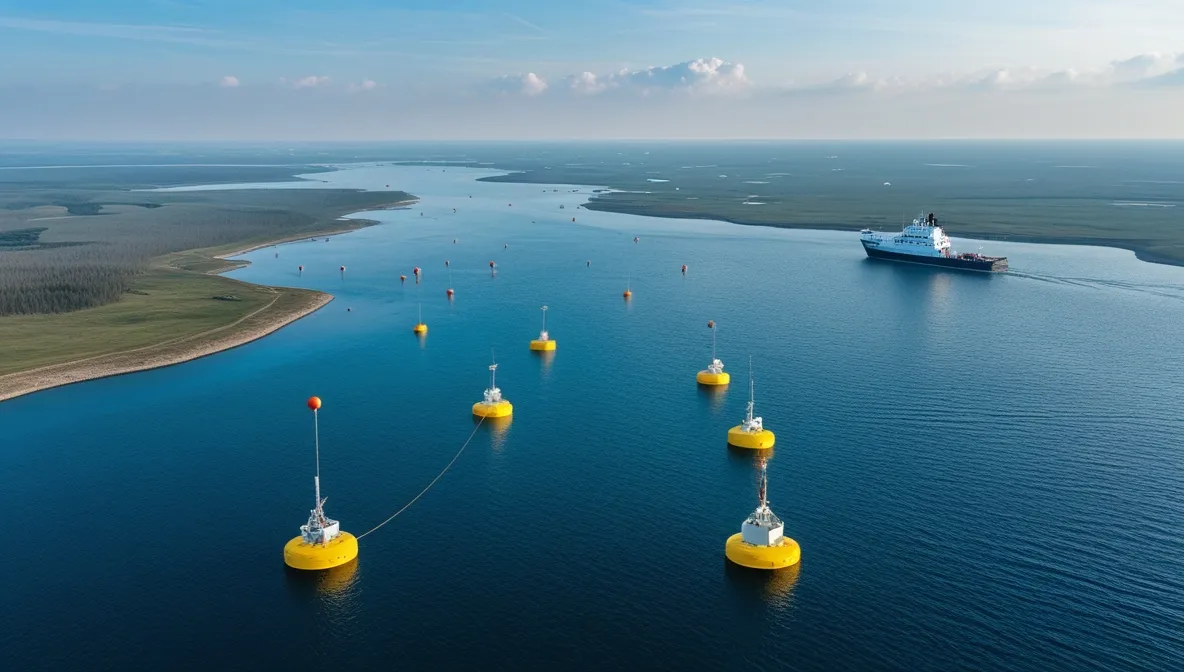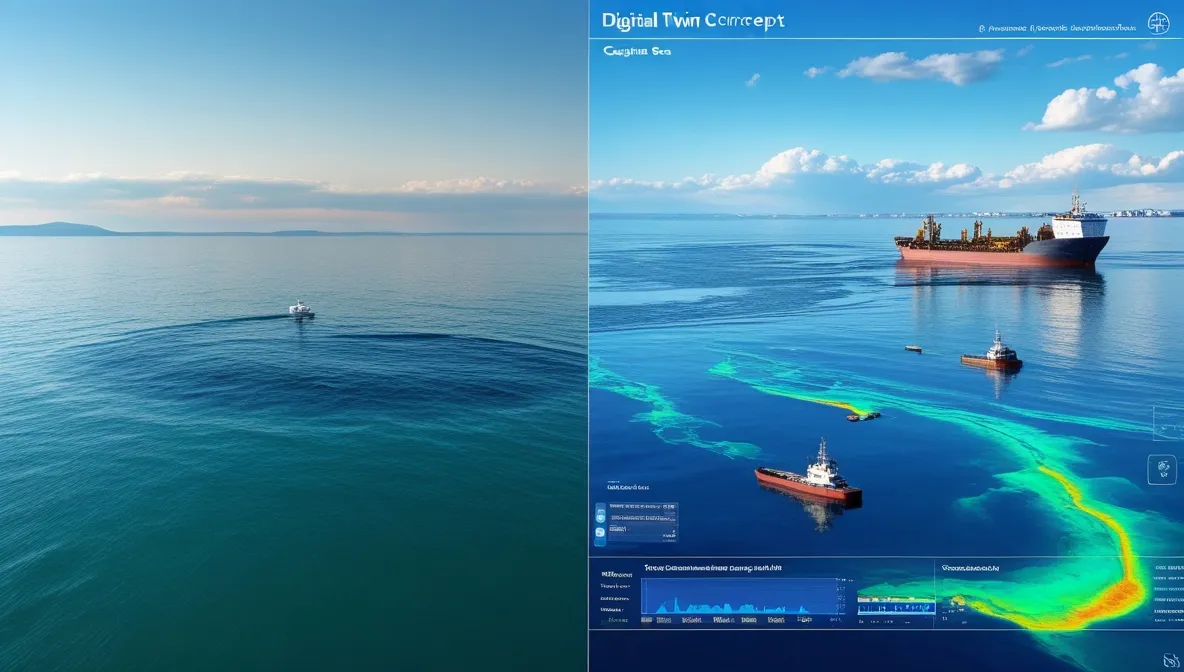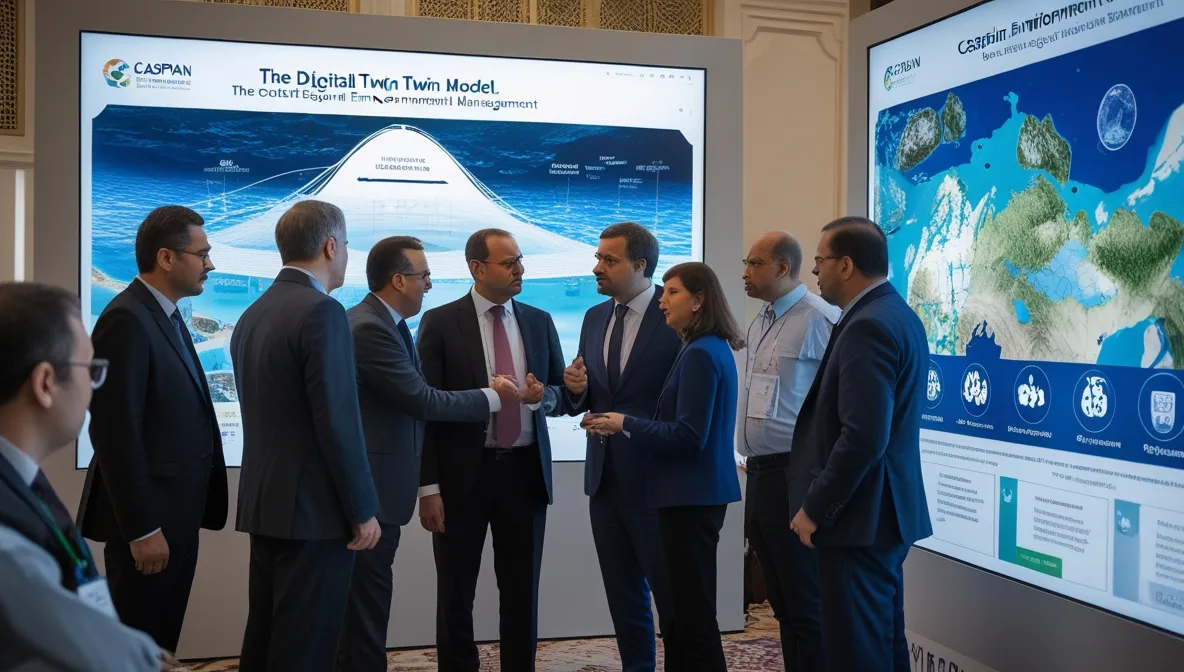Digital Twin of the Caspian Sea: A New Chapter in Ecological Management
Russia is building a full-scale digital twin of the Caspian Sea — a project designed not only to protect one of the planet’s most sensitive ecosystems, but also to redefine how nations monitor and manage large natural environments.

A Real-Time Model of a Living Sea
At the 3rd International Caspian Digital Forum in Dagestan, Vyacheslav Grachev, Chief Technology Officer at MTS Web Services, announced that a full digital twin of the Caspian Sea will be completed by the end of 2026.
The initiative is being developed jointly by MTS Web Services and the Ministry of Digital Development of the Republic of Dagestan.

The goal goes far beyond building another IT platform. The digital twin will become a high-precision simulation system capable of showing the current state of the sea and predicting the consequences of natural or human-driven changes. Such a tool will enable rapid responses to ecological threats — from oil spills to harmful algal blooms — and will also support long-term planning for fishing, shipping, and environmental protection.
The project highlights a shift in the role of digital technology. Once focused mostly on industrial automation and smart cities, digital twins are now being applied to complex, dynamic natural systems.
A full-scale model of the Caspian demonstrates how data science, remote sensing, and AI can be used not only to extract resources, but to protect them. If successful, the model will be replicated for other Russian water bodies.
From the Volga to Lake Baikal: A Systemic Digital Turn
The Caspian initiative builds on earlier national projects that proved the value of environmental digitalization. In 2023, engineers created a digital twin concept for the Volga River. In 2024–2025, work began on a multi-layer data model of Lake Baikal that includes simulations of mudflow dynamics and a full reconstruction of the lake’s ecosystem — a project involving 16 research institutes.

The Caspian Sea effort is also supported internationally: UNESCO’s Intergovernmental Oceanographic Commission is running a parallel initiative, “The Caspian Sea Digital Twin,” underscoring global interest in safeguarding the world’s largest inland body of water.
Russia sees the Caspian model as a potential export product. Once operational, the solution could be offered to other Caspian states — Azerbaijan, Kazakhstan, Turkmenistan, Iran — as well as countries facing similar coastal management challenges. When integrated with artificial intelligence, the model moves from monitoring to predictive decision-making, enabling governments to act before ecological damage occurs.

Toward Predictive Ecology
The digital twin of the Caspian Sea marks an inflection point: ecological policy is moving from reactive clean-up to proactive governance driven by real-time data. The first visible results are expected by late 2026, as measurement systems are deployed, historical datasets are processed, and the software platform begins to take shape. Pilot test zones may appear even earlier.
Once fully operational, the model will become a working tool for scientists, fishery managers, and environmental agencies. It may also serve as a template for a new class of ecological IT solutions — positioning Russia not only as an energy exporter, but as a developer of high-impact environmental technology.










































